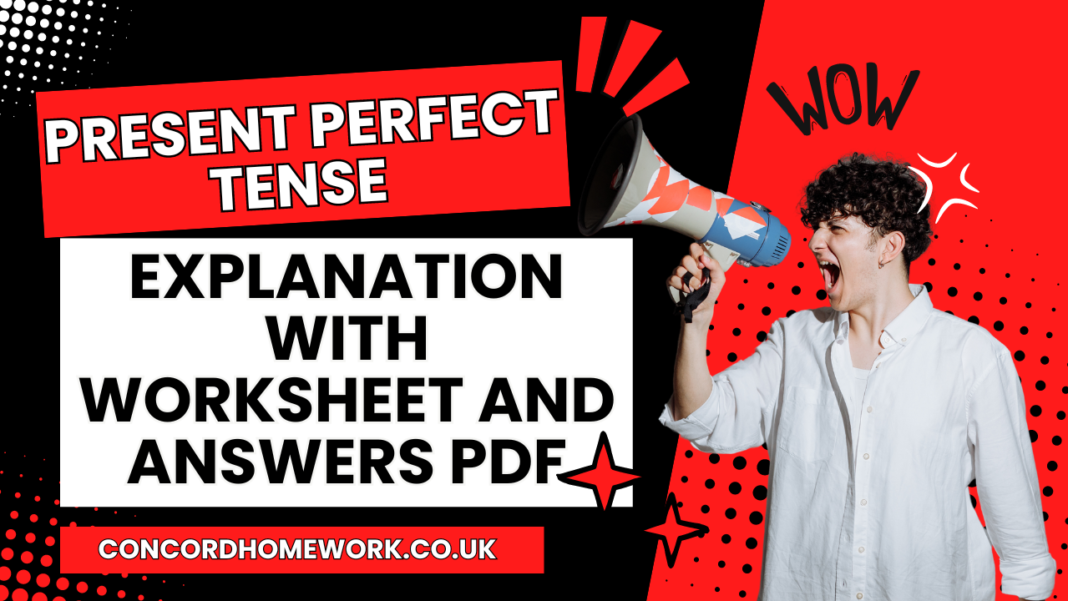The Present Perfect Form
Positive Form (Present Perfect Tense)
| Affirmative | Auxiliary Verb | Past Participle |
|---|---|---|
| She/He/It | has (‘s) | slept/worked |
| I/We/You/They | have (‘ve) | slept/worked |
Negative Form (Present Perfect Tense)
| Negative | Auxiliary Verb | Past Participle |
|---|---|---|
| She/He/It | has not (hasn’t) | slept/worked |
| I/We/You/They | have not (haven’t) | slept/worked |
Question Forms (Present Perfect Tense)
| Questions | Auxiliary Verb | Subject | Past Participle |
|---|---|---|---|
| Where/What | have | I/we/you/they | done/worked/slept |
| Where/What | has | she/he/it | done/worked/slept |
Short Answers with “Yes” & “No” (Present Perfect Tense)
| Short Answers | Auxiliary Verb | Past Participle |
|---|---|---|
| Yes | we/you/they/I———> have | slept/worked |
| Yes | he/she/it ————–> has | slept/worked |
| No | we/you/they/I ————–> have not (haven’t) | slept/worked |
| No | he/she/it—————-> has not (hasn’t) | slept/worked |
Regular verbs use -ed form as the past participle. Irregular verbs have irregular forms.
Verb
wait (regular)
see (irregular)
Past simple
waited
saw
Past participle
waited
seen
Note: You must practice and memorize the horrible list of irregular verbs.
When to use the present perfect tense?
to describe an event in the past without a definite time.
Example: Someone has broken a window in our classroom.to describe what someone has completed or achieved in a period of time.
Example: I’ve finished my homework, and I’ve cleaned my room.to describe how many things someone has done.
Example: Scientists have found more than 30 unknown Insects.to describe someone’s experiences, what he or she has done in life.
Example: I’ve travelled by plane, but l haven’t flown in a helicopter.to describe changes, comparing past and present.
Example: Our climate has become much warmer.
Time Expressions (The Present Perfect Tense)
We often use time words and phrases with present perfect simple to make the meaning clear and show how it’s done/created.
for and since
We use for with a length of time.
Example: She’s worked here for twenty years.
We use since with a point of time to describe when the period of time began.
Example: They’ve lived here since 2004.
just and recently
Example: Someone has just broken a window.
Example: Scientists have recently found more than 30 unknown insects.
ever? and never
Example:
Question: Have you ever flown in a helicopter?
Answer: I’ve never travelled by plane.
already (sooner than expected)
Example: I’ve already finished my homework. It was easy!
yet?(we expect something to happen soon)
Example: Have you finished yet?
not … yet (for things which have not happened so far)
Example: Henry hasn’t phoned yet. I’m still waiting.
been and gone
Example: A number of astronauts have been to the Moon.
(and have returned)
Example: The space probe Voyager has gone past the planet Neptune.
(it hasn’t returned)
Still (with Negatives)
Example: I still haven’t found my sunglasses.
- Download This English worksheet: “Present perfect tense explanation with worksheet and answers pdf”.
“Thank you for taking the time to explore this topic with us! We hope you found the information helpful and insightful. Have any thoughts, questions, or additional examples to share? We’d love to hear from you in the comments below!
Don’t forget to spread the word by sharing this blog with your friends, family, and colleagues. Together, let’s continue to learn, grow, and connect with the world around us. Happy reading and sharing!”
“Thank you for taking the time to explore this topic with us! We hope you found the information helpful and insightful. Have any thoughts, questions, or additional examples to share? We’d love to hear from you in the comments below!
Don’t forget to spread the word by sharing this blog with your friends, family, and colleagues. Together, let’s continue to learn, grow, and connect with the world around us. Happy reading and sharing!”
Follow Me On TikTok:
What topics/worksheets do you need? Let me know in the comments below!




















